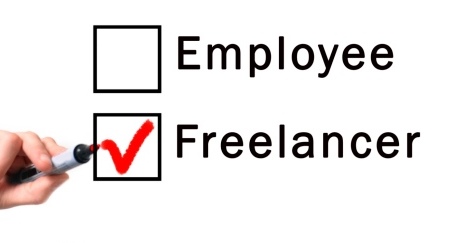There are many things I wish I had known before I began my freelancing career.
However I couldn’t fit every single thing in one post so I’ve narrowed it down the top 10 most important.
These are the 10 things I wish I knew before I started freelancing.
In this article we’ll take a a look at some these most important aspects of freelancing and how you can prepare for a freelancing career.
There are many factors that can determine the success of freelancer in today’s freelance market. We’ll take a look the most important factors here.
I hope this article can serve as a guide to help you get started with the 10 things that I wish I knew before I started freelancing and enable you to build off of this list.
With a good foundation to start off of you can build off of this list and grow and expand into the world of freelancing.
This is a list of the top 10 things I wish I knew before I started freelancing. I came up with this list on the fly in less than 5 minutes. I’ve you feel that I have missed something go ahead and leave some feedback in the comments below.
1. you are not an employee
A big misconception that inexperienced freelancers have when first starting out is that they are looking for a job from a client. This is not the case. You are essentially a business owner offering your services to customers or clients. So, you should carry yourself as such.
At the same time never allow a client to treat you as an employee. Make this clear and set expectations with your client before you accept the clients offer.
You’ll often hear “if you do well maybe we’ll even offer you a full time position”. This is where you need to remind the client you are not interested in that and that you are running your own freelancing business and have no desire to take on a full-time position with the client.
If the client doesn’t like this or seems irritated by this it may be best to decline the clients project and look for something else. The last thing you want to do is enter an engagement with a client that is going to treat you as an employee.
After all, that is one the reasons you left the 9-5 grind. You want to be your own boss. Your clients are your peers not your employers.
Check out my article on dealing with difficult clients in-case you do happen to fall into this trap here.

2. craft an incredible cover letter
When bidding on projects it is so vital to write an attention grabbing cover letter that outlines what you bring to the table.
You should also talk about previous projects that you have taken that turned out successfully. If you have not taken on a project as a freelancer then talk about your prior work experience. Be sure to touch on what separate you from other freelancers for this particular project.
You would be very surprised at how much a great cover letter matters even more so than your degree or years of experience in your particular field. You could have no degree and maybe only a year or two of experience in your field, but if you have an exceptional cover letter you’ll greatly increase your chances of winning the contract.
By doing this you’ll find that at times you’ll be winning contracts over people who have far more education and experience most likely because those candidates are writing sub-par cover letters.

3. always have more than 1 client
This is one that I really wish I knew before I started. It would have saved me so many headaches and saved from a few financial hardships.
You have to understand that because this is not a employee-employer relationship clients can leave the engagement at anytime for any reason. This is why I always say you should be willing to work up to 60 hours/week as a freelancer.
You never want to allow only one client to take all of your time. Doing so will set you up for a very difficult situation in the future if that particular client decides to end the engagement for whatever reason. If that happens then you suddenly finally yourself with 0 clients and no income at all from your freelancing business.
Having more than 1 client will help to mitigate this. Never give a client more than 40 hours as this goes back to what I said up being willing up to 60 as a freelancer.
This is because if a client does request a full time engagement (40hrs) then you will at least have 1 or 2 more clients that you can fall back on while you try to fill the void if your full time client decides to leave for whatever reason.
4. the first contract is most difficult
I’ve always said that obtaining your first client is the most difficult and frustrating part of starting your freelance career. It is something that ALL successful freelancers have gone through this to get where they are today.
As a professional freelancer you must have a high level of resiliency and persistence in order to be successful. Like sales, obtaining new clients is numbers game. You have to keep at it. Keep bidding on contracts. Bid on as many as you possible can. Take as many interviews as you can.
If you don’t have a contract yet then fill up your schedule with as many interviews as you can. Don’t assume that just because an interview went well and the client says they like you and want to move forward with you that it will actually happen. Clients can be incredibly flaky so assume nothing until an offer is in front of you and you have accepted it.
Until then keep interviewing!
You can read my article on how I started out and became a successful freelancer here.

5. bid on as many contracts as you can
As I touched on above, getting that first contract is a numbers game. It can potentially take anywhere from 50 to 100 proposals before you get an interview or even more depending on your niche.
This is why being resilient and persistent is so important.
This part of the process, the beginning, is where so many freelancers get frustrated and fail which leads them inevitably giving up and returning to the workforce. Rome wasn’t built in a day and your not about to be raking in six figures in that time frame either.
If you’re not willing to deal with the frustrating and hard parts of starting out as a freelancer then something like this just isn’t for you. You may find that you are just more comfortable as an employee. This isn’t for everyone.
Here is a great video by former bodybuilder Rich Piana (RIP) on “doing whatever it takes”.
The video is geared more towards bodybuilding but can be applied to any area of life.
6. continuously interview
As I said it can take many bids to finally receive that first interview. Do NOT stop there. You should continue bidding on as many projects as you can so that you can continue to add more and more interviews to your schedule.
It is a numbers game so the more interviews you can setup for yourself the more likely you will land that first contract. However, do not stop there. Continue interviewing. You need more than client so even after you get your first contract KEEP INTERVIEWING.
If you are a poor interviewer than this is something you must practice and get better at. Being able to interview well is so crucial to being a successful freelancer.
When I first started out it took me several interviews to finally land my first contract. These days my interview skills have improved tremendously and it typically only takes me between 1 and 3 interviews to land a new client.
They secret is there is no secret. You have to do it and fail a few times in order to learn and get better.
Practice, Practice, PRACTICE.

7. don’t get low-balled
It is important the clients respect your pay rate as a freelancer. So many clients will offer up all types of excuses as to why they don’t want to pay as much as they should. Do not fall into this trap.
However, in the beginning of your career don’t set your rate sky high or you’ll have a difficult time winning over any new clients. When first starting out you have to realize that if you have no social proof on your profile meaning that you have not completed any projects yet you many need to start out with a lower rate listed on your profile.
Although, if you’ve listed what you feel is a reasonable rate based on similar researching similar freelancers in your niche with similar experience and client asks you to substantially lower your rate then tell them to keep it moving. At that time you should figuratively walk away from the negotiating table.
On the other hand if let’s say for example that your listed rate is $25/hr and you haven’t many or any clients yet and a client offers you something like $20/hr or maybe $18/hr + performance incentives it many not be a bad idea to oblige if the client otherwise seems like a good fit.
So, don’t get low-balled but be reasonable and be willing to negotiate.
On a side note be weary of clients that offer you a low hourly rate with promise of high commission payouts. Ask to see the commission structure first and it if it looks suitable ask that client include the exact commission structure in the actual contract itself.
Here is great tool called AndCo for setting up your own contracts if you do not wish to use contracts provided by the various freelancing platforms.

8. recognize client red flags
As you begin taking on more and more clients throughout your freelance career you’ll run into great clients and not so great clients. You can help protect yourself from taking on bad clients by recognizing the warning signs early on.
So, what are some of these red flags to be wear of?
The first most obvious sign is if the client has bad rating on their profile or a review site. If other freelancers have only had bad experiences with this client then AVOID.
Some other not as obvious signs to watch out for can be found in the clients behavior from the time they request an interview to the time the make the initial offer.
A good client will always request an interview of some kind. They want to know if their money is going to go to good use or not. Be weary of clients that send an offer and ask you start without first setting up some kind of initial consultation with you.
Avoid clients that seem like they may try to treat you as an employee rather than a professional freelancer. This is a client based relationship not an employee employer based relationship.
Watch out for clients that set no expectations for their project or provide very little insight on how and when they want the project delivered. This is just asking for a fight later on.
Lastly, the kind of client that I absolutely despise is a client that feels the need to micromanage. A client like this has absolutely no respect for you. Checking in every now and then is acceptable. Asking for weekly reports can happen sometimes happen too and that is fine. What isn’t fine is if you find your client constantly checking in on you throughout the day. This is a huge red flag and this kind of client needs to be avoided at all costs. Not only is it unprofessional and incredibly annoying but you could possibly be setting your self up to be abused and mistreated further down the line.
Check out my article on dealing with difficult clients here.

9. great customer service
Maybe more important even than delivering results is providing great customer service. Always be supportive and understanding of your client. Do not settle for doing the bare minimum. You should go above and beyond for every client.
Even in instances where you may be struggling to complete a task reach out to the client and see if you can come up with a solution together. If worst comes to worst you should always try to give the client the impression that you area freelancer with integrity.
If you find yourself unable to complete a certain task for any reason you should immediately reach out to your client. Do your best to fulfill their needs and perhaps suggest that your skill set isn’t enough to complete the task at hand.
If this does happen you must do as much as possible to soften the blow for the client. Remember they are spending their hard earned money on you to complete a project.
The best thing to do if comes to this is gracefully suggest ending the contract and/or recommending another freelancer or agency that can do what the client needs.Until then offer to support the client until they are able to find a replacement.
Note: I said support the client not continue to work for client. Continuing to provide work that you can’t do or providing free work is neither productive for you or the client.

10. happy client = great review
Rather you successfully complete a project or find yourself needing to hand it off to someone else you should ALWAYS do whatever you can to keep your client as happy as possible.
Even in instances where you do not successfully complete a project but the client still likes you and is still happy with the work the you put forth in most cases you can expect at minimum a good review if not a great one.
This will heavily impact your ability to win more contracts in the future. Lots of good reviews will lead to clients reaching out to you and asking you for help on their project through project invitations. Poor reviews will make it very difficult for you to win more clients in the future.
So whatever you do always, always, always try to keep your client happy!

10 Things I wish I Knew Before I Started Freelancing
Lance Ulin
